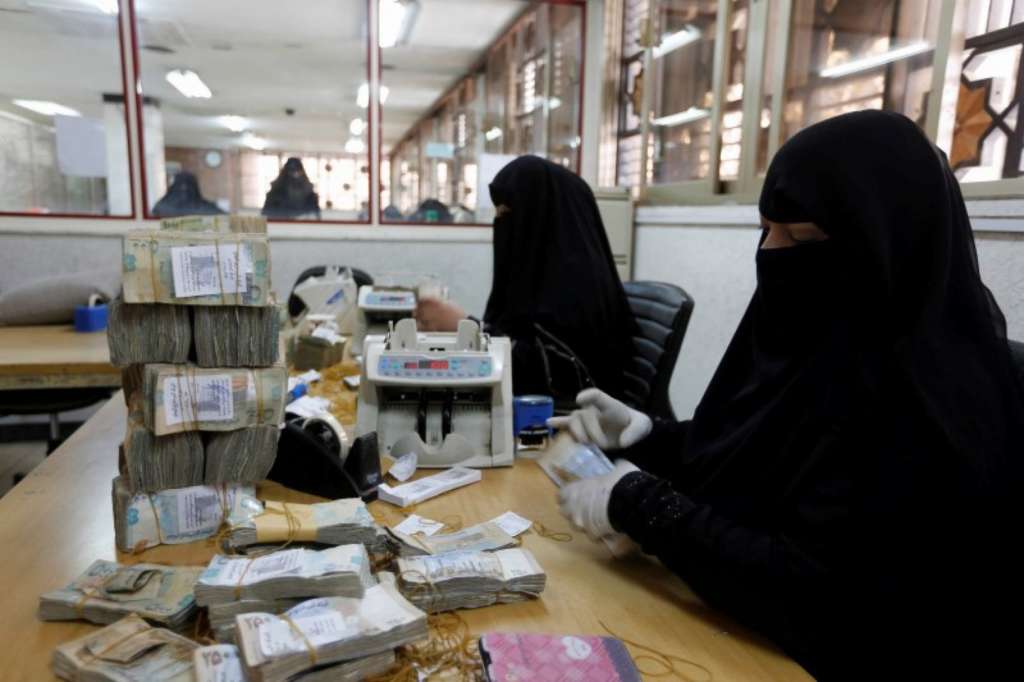Riyadh- Monasser al-Quaiti had to wait 50 years before becoming governor of the Yemeni Central Bank. Quaiti enjoys a rich expertise, not only because he descends from the Qu’aiti Sultanate in Hadhramaut, or because he has survived two assassination attempts in one year, but because he has witnessed the constant political transformations in Yemen.
Monasser al-Quaiti, governor of the Yemeni Central Bank, had enough courage to impose himself as the leader of the “political economy” in his country, and win his first challenges by moving the bank’s headquarters from Sana’a- a step no Yemeni policymaker has ever dared to make over the past 26 years.
During an interview with Asharq Al-Awsat newspaper, Quaiti revealed the second challenge and said: “When we officially corresponded with the United States concerning Ibrahim Al-Nahari, sub governor Of Foreign Operations Sector, we informed them on his anti-governmental activities and the misleading of financial institutions, and we renounced him.”
According to the governor, Nahari was preparing data to confuse the International Community. He also partook in the first Houthi delegation that visited Tehran, where he spent two weeks. Quaiti wondered what kind of independence does accompanying an insurgency delegation to Iran show!
*Historical outline
Quaiti told Asharq Al-Awsat that 51 years ago, the British chose the region of Kriter to establish the first central bank in the Arabian Peninsula in 1964. He explained the bank’s traditions saying that at that time, the new employee had to go over all work channels and different sectors to achieve a coordinated and consistent performance.
*The Yemeni unity
The Yemeni unification between the North and the South has brought a significant opportunity for all bankers who benefitted from unique expertise in the region. Not only two political systems were unified, but also economies, banks, and currencies. People who worked during this phase had the chance to witness the issuance of a new currency. At that time, Quaiti played a significant role in making that experience successful, especially as a supervisor in the unified Yemeni Central Bank and as member in the committee that merged currencies.
The governor sees that the unification was a significant incentive toward the development of the commercial banking sector. He added that they drafted two laws: one for the unified Central bank and the other for commercial banks.
He also spoke about difficulties they faced in merging systems and adapting them to the market’s mechanism, changing banking legislations and currency exchange.
Two years before his appointment as Governor, Quaiti survived two assassination attempts because of work-related issues. Commenting on this matter, he said that bankers who serve in leading posts communities such as in Yemen face myriad threats because of illegal interests in the banking system. These attempts took place while Quaiti was the director of CAC Bank, Cooperative & Agricultural Credit Bank YSC, one of the biggest commercial banks in the country that has managed USD2.5 billion since 2012.
During his interview, the new governor has asserted that his priorities include providing additional cash money, returning people’s trust in the bank, and recovering the monetary cycle so it resumes its normal rates.
He considered that to secure the safety of the bank’s performance, the main missions and commitments of the bank should focus on combating terrorism funding, money laundering, updating payment systems and encouraging banking institutions.
Quaiti said that he is keen to find solutions to pave the road to implement decisions of the Yemeni President in recomposing the Central Bank’s board and appointing a new governor and deputy governor, and moving its headquarters to Aden.
Finally, the new governor has reviewed legislations of the banking system in Yemen. They include laws and lists aiming at securing the application of these legislations, anticipating the future, even if the case required updating these legislations to convoy the developments.
*Who is Monasser al-Quaiti?
-He was born in 1955; married and has three children, he received his first bachelor from the University of Economy in Aden.
– After his graduation, he worked in the financial and banking sector before his appointment as a Governor for the Central Bank.
– He worked as an economic researcher and participated in concentrated programs in the Institutions on the International Monetary Fund (IMF) in Washington.
– He served as a member in the Central Bank’s board from 2002-2015; in October 2015, he was appointed as the Minister on Finance then as the Governor of the Yemeni Central Bank in September 2016.
